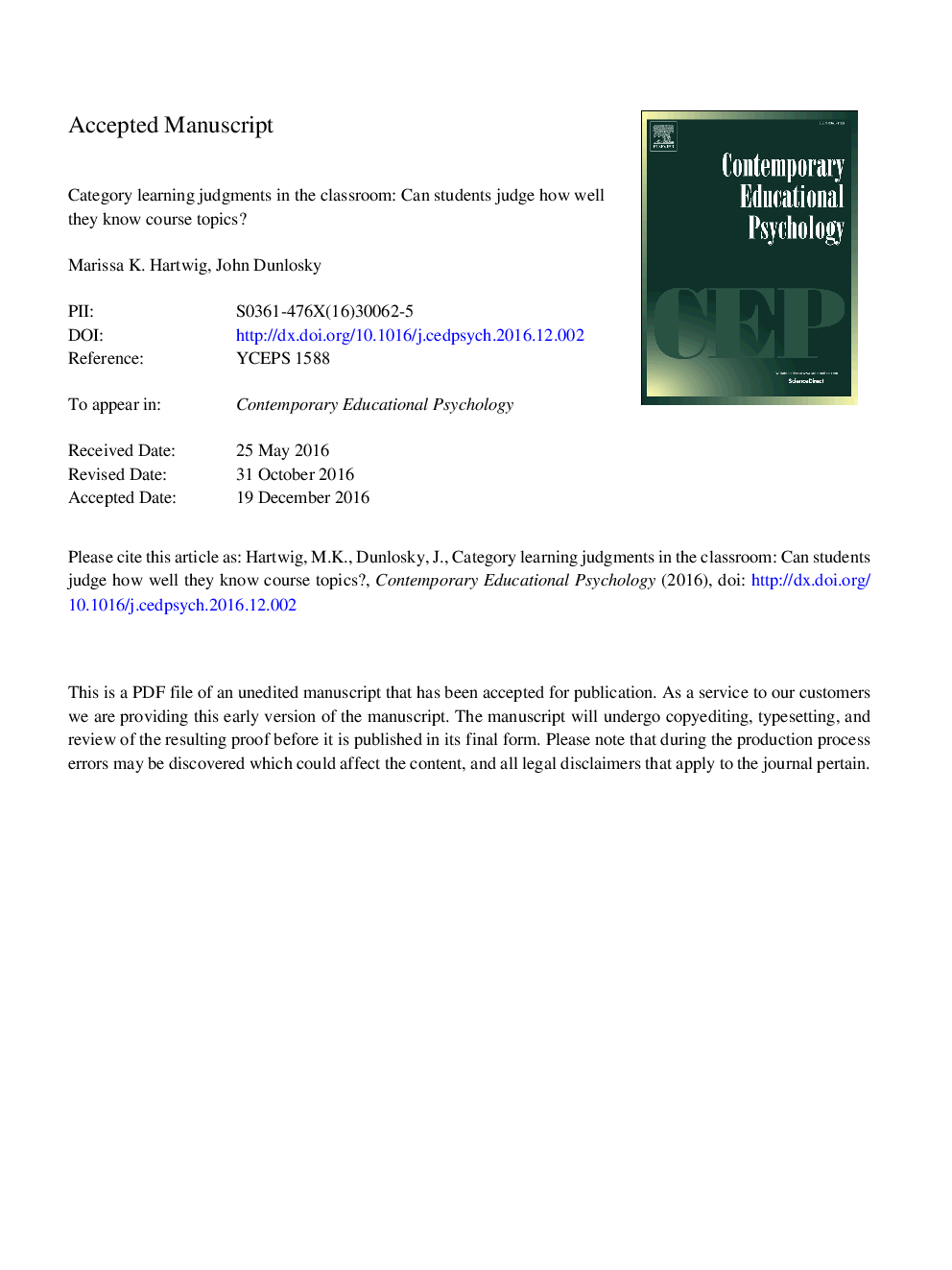ترجمه فارسی عنوان مقاله
قواعد یادگیری گروهی در کلاس: آیا دانش آموزان می توانند قضاوت کنند که چقدر آنها موضوعات درس را می دانند؟
عنوان انگلیسی
Category learning judgments in the classroom: Can students judge how well they know course topics?
| کد مقاله | سال انتشار | تعداد صفحات مقاله انگلیسی |
|---|---|---|
| 126317 | 2017 | 40 صفحه PDF |
منبع

Publisher : Elsevier - Science Direct (الزویر - ساینس دایرکت)
Journal : Contemporary Educational Psychology, Volume 49, April 2017, Pages 80-90
ترجمه کلمات کلیدی
قواعد یادگیری گروه، مباحث دقت فراشناختی، دانش آموزان، اثر سخت، اعتماد به نفس،
کلمات کلیدی انگلیسی
Category learning judgments; Topics; Metacognitive accuracy; Students; Hard-easy effect; Confidence;

